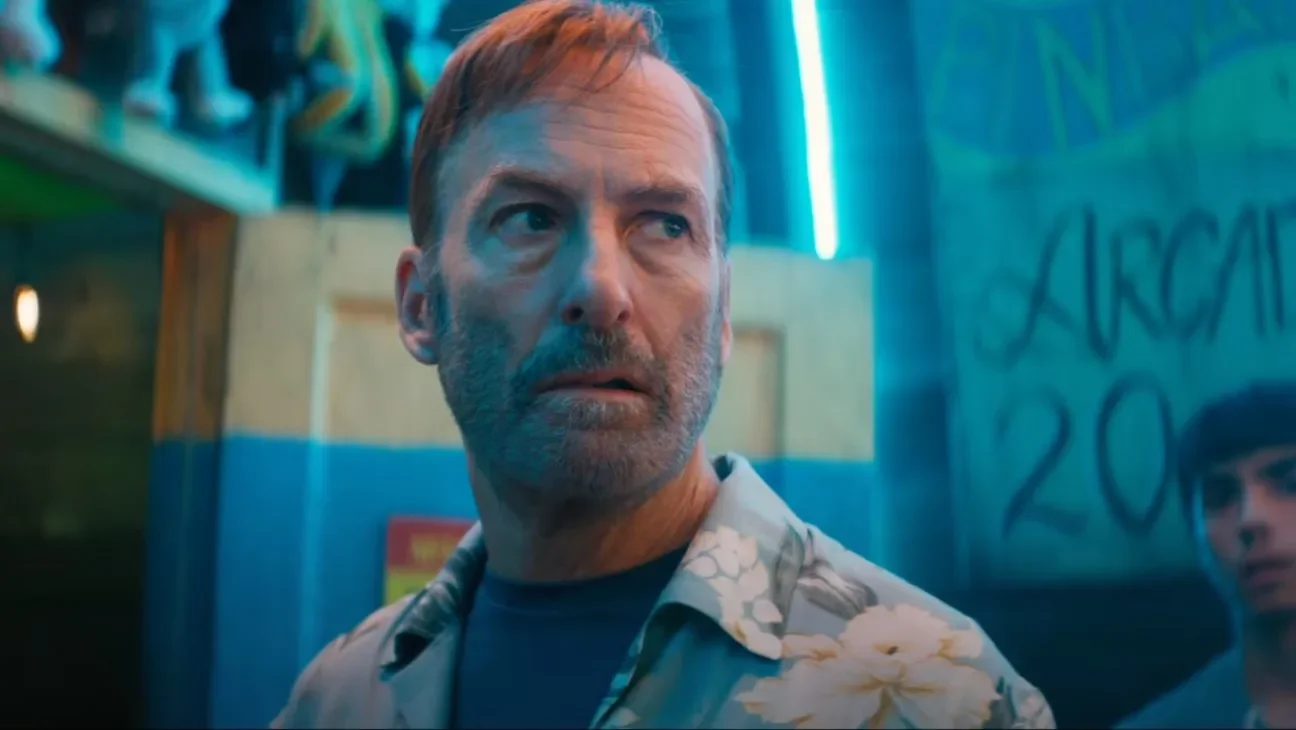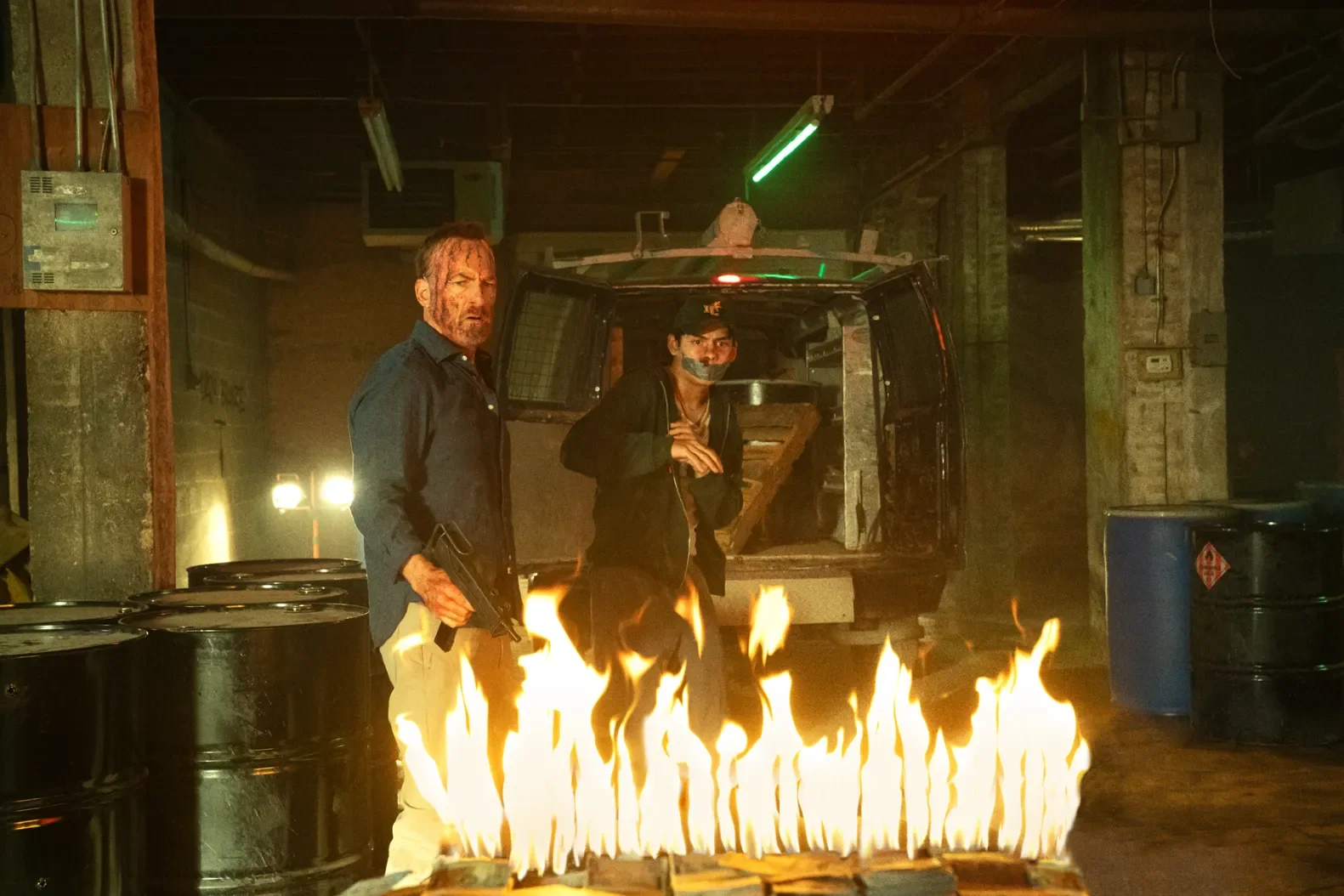‘Nobody 2’ Review
2021’s Nobody was a surprise for a lot of reasons. Directed by Ilya Naishuller (Hardcore Henry) and starring Bob Odenkirk, the film could easily have been reduced to being that year’s John Wick knock-off—not inherently a bad thing, but not something worthy of a sequel. Written by Derek Kolstad (who was a writer for the first three John Wick films and created the franchise), the film took an interesting turn and retained a sense of mystery while its suburban Dad character attempted to maintain a mundane lifestyle. However, once the wrong people stepped into Hutch Mansell’s (Odenkirk) life, the film became something bigger. It gave its star an action vehicle that had the opportunity to continue redefining his career (continued from his turn as Saul Goodman in Breaking Bad and Better Call Saul), while also centring itself around a genuinely interesting character whose pursuit of happiness was tangled up in a past of violence.
Nobody was also economical in what it decided to expand upon and what it left on the cutting room floor. Which makes its sequel, Nobody 2, an underwhelming follow-up when the big mystery has already been revealed and the shock of seeing a suburban Dad mercilessly dispatching Russian gangsters has pretty much evaporated. Arguably, this is why it makes sense to bring in a new director, and Nobody 2 delivers with Timo Tjahjanto, an Indonesian action director whose films have an adrenaline that is only surpassed by the gallons of blood spilled onscreen. His most recent films, The Shadow Strays and The Big 4, feature energetic action filmmaking that would put many action blockbusters to shame. The idea of Tjahjanto teaming up with the 87North team and channelling violence through Odenkirk’s Hutch is a tantalizing prospect that only gets better when you realize the setting of Nobody 2 is a waterpark that could easily be turned into an amusement park of carnage.
Unfortunately, Nobody 2 is a highly disappointing sequel that is mainly due to its story and screenplay never quite feeling like anything more than a writing exercise. Repurposing the same framing device as the first film, and even repeating the effective montage from the opening of that film (except this time Hutch is never home and it shows a family missing its patriarch), Nobody 2 never stops feeling slight. Hutch is now completely consumed by his work as he has fallen back into his old life and is now running errands for The Barber (Colin Salmon) to pay off the debt amassed from burning the Obshak in the first film. Meanwhile, his wife Becca (Connie Nielsen) can see their relationship deteriorating as Hutch is never home and misses everything going on with his family. He can’t find a work-life balance, and when he finally decides to take a vacation, his work manages to rear its ugly head and derail the whole thing.
That’s the most interesting idea that Kolstad and co-writer Aaron Rabin find in Nobody 2: the idea of someone falling back into their old habits and making up for time lost. In this case, it occurs on multiple fronts. Hutch is very clearly someone who loves what he’s doing and can hardly pull himself away from it, even if he’s technically only doing it to pay off a debt. However, he also loves his family. The impetus to take a vacation is not just to take a break but also to reconnect with a family that seems to have grown distant. His idea of a vacation is even an attempt to recapture the past as he revisits Plummerville and the waterpark that his father, David (Christopher Lloyd), took him and his brother Harry (RZA) to when they were young. The rose-tinted glasses come off pretty quickly when Hutch accidentally becomes the target of the corrupt law officials running the town, portrayed by Colin Hanks and John Ortiz.
If Nobody 2 had been something closer to a Neo-western punctuated by over-the-top brutal violence, it might have felt less derivative. The biggest issue is that Nobody 2 can’t repeat the same mystery about who Hutch is unless it’s from the perspective of the villains. It decides to do exactly that. The result is a movie where the audience knows that Hutch Mansell is not just your average Dad. But until the film’s final breath, it has characters surprised by Hutch’s skill set. It’s a bad decision made worse by the fact that the film’s main story eventually unchains itself from the vacation angle and tethers itself firmly to a generic plot of a fly in the ointment.
Nobody 2’s best asset is the 87North style of action and Tjahjanto. The action is fun, fast, and occasionally really creative. It’s willing to go a little bit further in the bloodiness of each sequence, but is also a lot sillier. It’s fitting for a sleepy town whose only attraction is a waterpark. An early fight in an arcade, prompted by a very slight but aggressive gesture, is enough to signal the film’s willingness to resort to violence at all times. It fits with the character of Hutch, who can’t seem to turn away from the chance to inflict pain, and it sets a tone for how over-the-top the film is willing to go tonally. This is further exemplified by Sharon Stone’s comedically absurd performance as Lendina, the brains behind a bootlegging operation that runs through Plummerville. Stone is committed to a performance that is so aggressively disorienting that it would fit better within Tjahjanto’s The Big 4 and its chaotic personas rather than Nobody 2, where the violence is what is chaotic. It’s a ludicrous swing from Stone that flops miserably.
Odenkirk is the grounding agent in the film, as well as the relationship that Hutch is trying to repair with his wife. The first film had this nice, enigmatic past for its husband and wife characters, where you knew their bond was strong, and it was clear that Becca was aware of Hutch’s past. Tiny moments like that and the relationship between Hutch, Harry, and their father were slightly touching affectations to an otherwise straightforward screenplay. Those relationships form the backbone of Nobody as a potential franchise but also double as an example of how Kolstad can make characters and a world feel lived-in without having to resort to overexplaining everything. It worked for John Wick, and it worked again for Nobody.
Nobody 2 does not care so much about what small actions mean for a character, but more about what it means for the scope of the action itself. There’s an undeniable glee to the film. However, it’s because it is uninterested in the more sullen beats of its screenplay. Ultimately, Nobody 2 feels like what the first Nobody sounded like it would be on paper—just a lot sillier. The fact that Hutch is happier—and as a result, Odenkirk plays the character less reserved—means that the movie has to wrestle with the other characters if it wants Hutch to remain happy. It pretends like it’s going to do that before brushing with broad strokes and falling back on the more derivative corrupt town narrative. The flipside is that the action manifests from the more generic story, and it’s still a delight to witness.
Unfortunately, for every action beat in a set piece that had me smile, there’s an overall lack of originality that keeps appearing. An amusing fight on a duck boat is structurally similar to the bus fight from the first film, and the climax, while taking advantage of its setting, is a pale imitation of the previous film’s final set piece. It’s a movie that is going for something different but can’t quite figure out how to get there. Tonally, it’s so far removed from the original film that it does feel like any sequel to this would start becoming self-aware. The grit of the original is gone and replaced with a far less serious tone, and characters are all leaning heavily into single traits rather than being fully-rounded individuals. Nobody 2 is a candy-coated detour that tries to recapture the magic of the original without bringing anything meaningful to the table.


